new posts in all blogs
Viewing: Blog Posts Tagged with: 1956, Most Recent at Top [Help]
Results 1 - 10 of 10
How to use this Page
You are viewing the most recent posts tagged with the words: 1956 in the JacketFlap blog reader. What is a tag? Think of a tag as a keyword or category label. Tags can both help you find posts on JacketFlap.com as well as provide an easy way for you to "remember" and classify posts for later recall. Try adding a tag yourself by clicking "Add a tag" below a post's header. Scroll down through the list of Recent Posts in the left column and click on a post title that sounds interesting. You can view all posts from a specific blog by clicking the Blog name in the right column, or you can click a 'More Posts from this Blog' link in any individual post.
If I Ran the Circus. Dr. Seuss. 1956. Random House. 58 pages. [Source: Library]
First sentence:
"In all the whole town, the most wonderful spot
Is behind Sneelock's Store in the big vacant lot.
It's just the right spot for my wonderful plans,"
Said young Morris McGurk, "...If I clean up the cans."
Premise/Plot: A young boy imagines the circus he could have if only he cleaned up the vacant lot behind his favorite store. What a circus, he'd have. The best, BEST circus ever. He shares his plans for all his sideshow acts and for all the acts under the big tent too. Page after page, readers see one fabulous act after another.
My thoughts: Loved it. I wasn't expecting to love it. No one quite does rhythm and rhyme like Dr. Seuss. His books are fun to read, but, they're even better read aloud. He makes it look so simple and easy. To write in rhyme, to entertain young ones with a fun, imaginative story. But the thing is, it isn't that easy at all. So. I am definitely enjoying reading and rereading Seuss this year! I can't believe I never read this one growing up. But it's NEVER TOO LATE.
Have you read If I Ran the Circus? Did you like it? love it? hate it? I'd love to know what you think of it!
If you'd like to join me in reading or rereading Dr. Seuss (chronologically) I'd love to have you join me! The next book I'll be reviewing is The Cat in the Hat.
Bonus:
How The Grinch Stole Christmas was published in 1957. I reviewed this one in December of 2014.
© 2015 Becky Laney of
Becky's Book Reviews
The 101 Dalmatians. Dodie Smith. 1956/1989 Penguin. 192 pages. [Source: Owned Since Childhood]
I have been meaning to read this one for decades. The Disney adaptation is one of my favorites. It is. I love and adore it.
Kanine krunchies can't be beat they make each meal a special treat. It's just a satisfying movie that is practically perfect in every way.
So. What did I think of the book? Well. It's different that's for sure. Missis and Pongo are the lovely dalmatian couple with fifteen adorable puppies. The human couple, Mr. and Mrs. Dearly, seeks out another dalmatian wet nurse, if you will. The vet says that no dog can successfully nurse fifteen puppies and have them all thrive. So seven of the pups become Perdita's to raise. The three dogs become quite close friends. The happy couple pities Perdita for she lost her love, Prince, and her own puppies. (Mr. Dearly does NOT write songs. He's an accountant or something along those lines. The book merely says he's a financial wizard who did something or other for the government.)
Cruella de Vil and her HUSBAND are social acquaintances of Mr. and Mrs. Dearly. She wears fur year-round. Her husband is a furrier, and, she doesn't hide the fact that she married him because of it.
The basics of the story are the same. Cruella de Vil wants the puppies and hires someone to steal the puppies. True, there are two nannies tending to the puppies instead of just one. But, the end result is the same. The puppies are gone. Pongo and Missis do the twilight bark, eventually they hear back that the puppies are found.
I liked this one.
© 2014 Becky Laney of
Becky's Book Reviews
The Birth of Britain (History of the English Speaking People #1). Winston Churchill. 1956. 496 pages. [Source: Bought]
The Birth of Britain is the first of four volumes in Winston Churchill's History of the English Speaking People series. It begins around the time of Julius Caesar and ends on Bosworth Field with the death of Richard III.
"
I write about the things in our past that appear significant to me, and I do so as one not without some experience of historical and violent events in our own time."
He later writes,
Every nation or group of nations has its own tale to tell. Knowledge of the trials and struggles is necessary to all who would comprehend the problems, perils, challenges, and opportunities which confront us to-day."
And,
"
Five years is a lot. Twenty years is the horizon to most people. Fifty years is antiquity. To understand how the impact of destiny fell upon any generation of men one must first imagine their position and then apply the time-scale of our own lives. Thus nearly all changes were far less perceptible to those who lived through them from day to day than appears when the salient features of an epoch are extracted by the chronicler."
I enjoyed it. I really did. I love history. I do. And British history, well, it's my favorite and best. It's a subject that more often than not I find fascinating. Not to say that I'm never puzzled as I try to absorb new information. But for a history lover, absorbing new information is part of the fun, part of the appeal. So, yes, this one could prove challenging and complex at times. But it could also prove quite entertaining. I did feel it was more balanced than say
Charles Dickens' history! If you remember, I did not think Dickens treated women fairly...at all.
Table of Contents
Book I: The Island Race
- Britannia
- Subjugation
- The Roman Province
- The Lost Island
- England
- The Vikings
- Alfred the Great
- The Saxon Dusk
Book II: The Making of the Nation
- The Norman Invasion
- William the Conqueror
- Growth and Turmoil
- Henry Plantagenet
- The English Common Law
- Coeur de Lion
- Magna Carta
- On the Anvil
- The Mother of Parliaments
- King Edward I
- Bannockburn
- Scotland and Ireland
- The Long-Bow
- The Black Death
Book III: The End of the Feudal Age
- King Richard and the Social Revolt
- The Usurpation of Henry Bolingbroke
- The Empire of Henry V
- Joan of Arc
- York and Lancaster
- The Wars of the Roses
- The Adventures of Edward IV
- Richard III
I share the table of contents because that is what I would be curious about. I share quotes as well because to me
how a writer says something is sometimes just as significant as what is being said.
Quotes:
One morning Duke Robert of Normandy, the fourth descendant of Rollo, was riding towards his capital town, Falaise, when he saw Arlette, daughter of a tanner, washing linen in a stream. His love was instantly fired. He carried her to his castle, and, although already married to a lady of quality, lived with her for the rest of his days. To this romantic but irregular union there was born in 1027 a son, William, afterwards famous.
When death drew near his sons William and Henry came to him. William, whose one virtue had been filial fidelity, was named to succeed the Conqueror in England. The graceless Robert would rule in Normandy at last. For the youngest, Henry, there was nothing but five thousand pounds of silver, and the prophecy that he would one day reign over a united Anglo-Norman nation. This proved no empty blessing.
Few mortals have led so full a life as Henry II or have drunk so deeply of the cups of triumph and sorrow. In later life he fell out with Eleanor. When she was over fifty and he but forty-two he is said to have fallen in love with “Fair Rosamond”, a damosel of high degree and transcendent beauty, and generations have enjoyed the romantic tragedy of Queen Eleanor penetrating the protecting maze at Woodstock by the clue of a silken thread and offering her hapless supplanter the hard choice between the dagger and the poisoned cup. Tiresome investigators have undermined this excellent tale, but it certainly should find its place in any history worthy of the name.
It has often been said that Joan of Arc first raised the standard of nationalism in the Western world. But over a century before she appeared an outlaw knight, William Wallace, arising from the recesses of South-West Scotland which had been his refuge, embodied, commanded, and led to victory the Scottish nation. Edward, warring in France with piebald fortune, was forced to listen to tales of ceaseless inroads and forays against his royal peace in Scotland, hitherto deemed so sure. Wallace had behind him the spirit of a race as stern and as resolute as any bred among men. He added military gifts of a high order. Out of an unorganised mass of valiant fighting men he forged, in spite of cruel poverty and primitive administration, a stubborn, indomitable army, ready to fight at any odds and mock defeat. The structure of this army is curious. Every four men had a fifth man as leader; every nine men a tenth; every nineteen men a twentieth, and so on to every thousand; and it was agreed that the penalty for disobedience to the leader of any unit was death. Thus from the ground does freedom raise itself unconquerable.
When Henry V revived the English claims to France he opened the greatest tragedy in our medieval history. Agincourt was a glittering victory, but the wasteful and useless campaigns that followed more than outweighed its military and moral value, and the miserable, destroying century that ensued casts its black shadow upon Henry’s heroic triumph.
Out of her own mouth can she be judged in each generation. She embodied the natural goodness and valour of the human race in unexampled perfection. Unconquerable courage, infinite compassion, the virtue of the simple, the wisdom of the just, shone forth in her. She glorifies as she freed the soil from which she sprang. All soldiers should read her story and ponder on the words and deeds of the true warrior, who in one single year, though untaught in technical arts, reveals in every situation the key of victory.
It was upon this community that the agonies of the Wars of the Roses were now to fall. We must not underrate either the great issues which led to the struggle or the conscious, intense, prolonged efforts made to avert it. The need of all men and their active desire was for a strong and capable Government. Some thought this could only be obtained by aiding the lawful, established régime. Others had been for a long time secretly contending that a usurpation had been imposed upon them which had now become incompetent.
Historians have shrunk from the Wars of the Roses, and most of those who have catalogued their events have left us only a melancholy and disjointed picture. We are however in the presence of the most ferocious and implacable quarrel of which there is factual record. The individual actors were bred by generations of privilege and war, into which the feudal theme had brought its peculiar sense of honour, and to which the Papacy contributed such spiritual sanction as emerged from its rivalries and intrigues. It was a conflict in which personal hatreds reached their maximum, and from which mass effects were happily excluded. There must have been many similar convulsions in the human story. None however has been preserved with characters at once so worldly and so expensively chiselled.
History has scolded this prince of twenty-two for not possessing immediately the statecraft and addiction to business for which his office called. Edward united contrasting characters. He loved peace; he shone in war. But he loved peace for its indulgences rather than its dignity.
© 2014 Becky Laney of
Becky's Book Reviews
Sprig Muslin. Georgette Heyer. 1956/2011. Sourcebooks. 304 pages. [Source: Library]
Sprig Muslin is a lovely romance novel by Georgette Heyer. It is very reader-friendly; the pacing is even and it's a delight from the start. (In some of Heyer's novels the satisfaction comes in the last third of the novel; that isn't the case in Sprig Muslin). What makes Sprig Muslin satisfying isn't the romance, it is the comedy.
Sir Gareth Ludlow is on his way to propose to a very respectable woman, Lady Hester. He is quite fond of her, has respected and admired her for years. But he is not
madly in love with her. On his trip, he accidentally meets Amanda "Smith." This young woman is obvious trouble from the start. She is obviously a woman intent on running away. He doesn't know her real name; he doesn't know where she's from--city or country; he doesn't know anything about her character except that she's a big liar, has an extraordinary imagination, and is incredibly foolish. This is a woman in need of rescuing. She needs someone with commonsense and no agenda to get her back where she belongs. He doesn't exactly want the job. But someone has to do it. He can't just leave her to her own designs or something awful could happen.
Amanda is the life of this novel. She is foolish, imaginative, stubborn, and vivacious. She is always plotting, always on the move, always calculating the situation and writing a new story. She keeps the novel going at a tremendous pace. Sir Gareth can hardly keep up with her, and the others they meet along the way are just as bad.
The novel is a big misadventure; there are plenty of interesting characters as well. This novel works BECAUSE Sir Gareth and Amanda are not love interests. I loved every minute of this one. Not because it was romantic and giddy-making, but because it was just so funny.
© 2013 Becky Laney of
Becky's Book Reviews
Time for the Stars. Robert A. Heinlein. 1956. Tor. 244 pages.
According to their biographies, Destiny's favored children usually had their lives planned out from scratch. Napoleon was figuring on how to rule France when he was a barefoot boy in Corsica, Alexander the Great much the same, and Einstein was muttering equations in his cradle. Maybe so. Me, I just muddled along. At last, I have a FAVORITE Robert Heinlein novel. There have been a handful of novels that have been almost-love for me. Novels that I've enjoyed for the most part, and in places even loved. But for me, Time for the Stars is the BEST. I just love, love, love this one. It had everything I wanted. And nothing I didn't! The premise of this one is simple and it works well for the most part.

Earth is sending out a dozen spaceships to explore the galaxy, to find potential planets to colonize. Each spaceship has a dozen or so mind-readers/telepaths on board. Almost all of the telepaths are twins. One twin stays on Earth and receives transmissions from the ship, from his or her partner; the other twin goes into space, has the adventure, and sends all the messages to Earth. Almost all the telepathic pairs are young adults or children--they have to be because they know that aging will be an issue. (One twin will stay young, one will age normally.)
The hero of Time for the Stars is Tom Bartlett. His twin is Pat. Used to being bullied--or bossed around--by his twin, Tom never thought he'd be the one to go on the ship Lewis and Clark, or "Elsie". But when his brother has a skiing accident, the twins switch places...for better or worse.
So. This novel is all space adventure. But I think for the first time, perhaps, Heinlein's characters were ones that I really, really CARED about. It was the first time I recognized Heinlein of having the ability to create interesting, well-developed characters. So this book was more than a premise. It actually had substance too.
Read Time for the Stars
- If you've been disappointed by Heinlein in the past and are looking for a book that satisfies
- If you're looking to try Heinlein for the first time
- If you're interested in a science fiction book with young(er) characters/narrators
- If you're a fan of science fiction, particularly science fiction that focuses on space exploration and colonization
- If you're looking for some adventure with your science fiction
© 2012 Becky Laney of
Becky's Book Reviews
Double Star. Robert A. Heinlein. 1956. Del Rey. 245 pages.
If a man walks in dressed like a hick and acting as if he owned the place, he's a spaceman. It is a logical necessity. His profession makes him feel like boss of all creation; when he sets foot dirtside he is slumming among the peasants. As for his sartorial inelegance, a man who is in uniform nine-tenths of the time and is more used to deep space than to civilization can hardly be expected to know how to dress properly. He is a sucker for the alleged tailors who swarm around every spaceport peddling "ground outfits.""The Great Lorenzo" has been hired to impersonate a prominent politician--a Mr. John Joseph Bonforte. This job will take him to Mars and beyond. When he accepts the job, he doesn't really know all the facts. He doesn't know what the job will require--beyond an impersonation at a public/social event. And he doesn't know how long the job will last. He hopes not too long, since he doesn't really like politics, and he doesn't really like the political viewpoints of the person he'll be playing. Even if he asked before leaving Earth, I doubt he'd been told the truth.
So. I'm not quite sure what to think of
Double Star. On the one hand, it was relatively clean. (I stopped reading the last two Heinlein novels I picked up from the library because they were, well, perhaps Vir says it best: "That's...that's quite all right, I get the idea. I don't really need to know more than you've told me. In fact, I wouldn't have been upset to know less." The titles of those two were
Friday and
I Will Fear No Evil.)
And Double Star wasn't exactly boring...it just wasn't thrilling. It was one of those books were the beginning is better than the middle and the end. I'm not sure if that's because of my expectations or his writing. (Is it wrong for me to expect science fiction novels to have developed characters?)
Read Double Star
- If you're a fan of Robert A. Heinlein
- If you're a fan of vintage science fiction
- If you're interested in reading Hugo winners
- If you're interested in politics
- If you're interested in space travel
© 2012 Becky Laney of
Becky's Book Reviews
Dead Man's Folly. Agatha Christie. 1956/2000. Penguin. 240 pages.
It was Miss Lemon, Poirot's efficient secretary, who took the telephone call. Hercule Poirot is coming to the aid of his friend Ariadne Oliver. This mystery writer is planning a fun weekend game of mock murder. But days away from the big event, she's getting this uncomfortable feeling. Her instincts are telling her that something is wrong. She's not sure exactly what is wrong. But she feels the need for Poirot. And he's happy to help--happy to show off, perhaps?
Dead Man's Folly has an interesting cast of characters. And I enjoyed reading this one. Christie has a wonderful gift with characterization--each man and woman so complex, so layered. And it's always interesting to see how her stories unfold. To see how the clues unfold. There are plenty of clues--true and false--in this one.
I liked this one. It was a compelling read. I am so happy I discovered Agatha Christie this year!
"The fatal flaw, eh?" he remarked.
"That's just it," said Mrs. Oliver. "There always is one. Sometimes one doesn't realize it until a book's actually in print. And then it's agony!" Her face reflected this emotion. She sighed. "The curious thing is that most people never notice it. I say to myself, 'But of course the cook would have been bound to notice that two cutlets hadn't been eaten.' But nobody else thinks of it at all." (56)
It would be difficult, Bland thought, to forget Hercule Poirot, and this not entirely for complimentary reasons. (101)
"What can you say about how you write books? What I mean is, first you've got to think of something, and when you've thought of it you've got to force yourself to sit down and write it. That's all. It would have taken me just three minutes to explain that, and then the Talk would have been ended and everyone would have been very fed up. I can't imagine why everybody is always so keen for authors to talk about writing. I should have thought it was an author's business to write, not talk." (209)
© 2011 Becky Laney of
Becky's Book Reviews
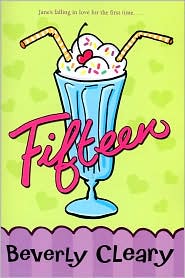
Fifteen by Beverly Cleary. 1956. HarperCollins. 208 pages.
Today I'm going to meet a boy, Jane Purdy told herself, as she walked up Blossom Street toward her babysitting job. Today I'm going to meet a boy. If she thought it often enough as if she really believed it, maybe she actually would meet a boy even though she was headed for Sandra Norton's house and the worst babysitting job in Woodmont.
Will Jane meet a boy? Would there be two straws on the cover if she didn't?
There is a sweet fairy-tale quality to this oh-so-innocent YA romance. Stan may not be swoon-worthy by today's standards. (He delivers horse meat. I had to keep telling myself that that didn't really matter. But it was still a little hard for me, especially when he took her on a date in his delivery truck.) Also Jane may not be role-model material for some readers. Seeing as to how once she meets Stan all she wants to be is Stan's girl. (Though when it comes down to it--minus the sparkles, of course--is it all that different than Bella wanting to be Edward's girl?)
What Fifteen does offer readers is a nostalgic glimpse of young love at its sweetest, its most innocent. Jane is not confident when it comes to love and dating. Stan is her first real date. (You know those dates with George so didn't count.) And her nervousness can be endearing. And while some details may seem a bit too dated, there is a certain timelessness as well.
All day Sunday Jane drifted around the house in a happy glow, humming Love Me On Monday and hovering near the telephone, because she was sure Stan would call. Monday she stopped humming and hated the telephone, because she was sure he would never, never call. Tuesday he called. (76)
He had said he would see her soon. Soon. Jane did not like the word. It could mean anything--an hour or a week or a month. Men were so exasperating. (81)
I enjoyed this one. It was interesting to read
Fifteen soon after finishing
Some Girls Are by Courtney Summers. (I'll have a review of that one up soon.) It was hard to read this one without making comparisons to today's YA. It was nice in a way to see an innocent, sweet look at love, at dating, at family life. It would be interesting to see if
Fifteen is still being read (and enjoyed) by teens, or if it is more of a title for adults looking to recapture their own experiences...
© Becky Laney of
Becky's Book Reviews
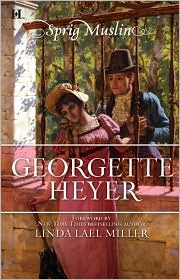
Sprig Muslin. Georgette Heyer. 1956/2009. Harlequin. 288 pages.
Mrs. Wetherby was delighted to receive a morning call from her only surviving brother, but for the first half hour of his visit she was granted no opportunity to do more than exchange a few commonplaces with him over the heads of her vociferous offspring.
Sprig Muslin is an enjoyable Georgette Heyer novel. It's easily accessible, which isn't always the case, and it's a quick action-packed read. What kind of action? Well, more comedy than drama. And by action, I don't mean explosions.
The hero of Sprig Muslin is Sir Gareth Ludlow. Gareth is the brother who is visiting his sister, Mrs. Wetherby. He's there to say that he's going to propose marriage to a woman, Lady Hester. It's all planned out. He's gotten the father's permission, etc. But his sister is shocked. Her brother could have anybody, anybody. Why would he seek out a spinster (she's in her late twenties) who's so boring? (From his sister's position that is. Gareth doesn't find her boring at all. He finds her smart.) His sister thinks the match is unfair. Unfair to him. She knows that her brother has never quite recovered from the death of his fiancee seven years (is it seven?) before. But he's convinced that the time is right, that the girl is right.
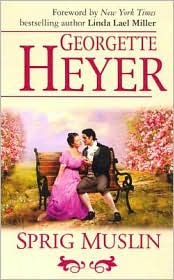 However, somewhere along the way--on his way to visit the girls' family on their estate in the country--he happens to "rescue" a young damsel in distress, Amanda. Amanda "Smith." Her stories and tall tales outnumber the hairs on her head. He knows she's under seventeen. He knows that she is running away from home. But he doesn't know who she belongs to...(her name, her home, her situation, etc.) or what to do with her. She's determined to find employment--a chambermaid, a maid, a dairy maid, a governess, etc. All this in an attempt to prove she's "mature" and ready to get married to her soldier-love, Neil.
However, somewhere along the way--on his way to visit the girls' family on their estate in the country--he happens to "rescue" a young damsel in distress, Amanda. Amanda "Smith." Her stories and tall tales outnumber the hairs on her head. He knows she's under seventeen. He knows that she is running away from home. But he doesn't know who she belongs to...(her name, her home, her situation, etc.) or what to do with her. She's determined to find employment--a chambermaid, a maid, a dairy maid, a governess, etc. All this in an attempt to prove she's "mature" and ready to get married to her soldier-love, Neil.
So he takes her with him. He brings this strange girl with a mind all her own with him on his journey to propose to Lady Hester. Her family is more than a little confused and unsettled about the affair. They think it is an affair--that he's brought his mistress along with him. A Mr. Fabian Theale is Hester's uncle, I believe. It is his notion that the young miss is Ludlow's mistress. That she is that sort sort of "lady." That she is his for the taking if he can steal her right out from under Gareth.
Amanda doesn't know much about Theale except that he's old and a bit fat. But she does see him as serving her immediate needs. She needs transportation and a way to sneak out of this new situation. And Theale is more than willing to oblige. Of course, he hasn't any idea that she's good at manipulating and bamboozling those around her. A girl fond of novels. A girl with a vivid imagination. A silly, very gullible, unthinking girl.

Stop! Don't move along, there's plenty to see here! Check it out. Tonight we are already in chapter seven ... we are going to end the summer of 1956, and begin 8th grade with the dreaded Mr. Sadler. We'll come back to the beginning and pass it. If you don't know, we started the book with an attempted rape of the 12-year-old Poor Little Thing, then her own decision to give up her virginity to 15 year old Ronnie. Now she's trying to live as though nothing has happened, but life isn't that simple. Rumors are flying and she has to face up to reality -- tonight! Come join me at 7pm Pacific Time at www.PIVTR.com ... log in about 5 minutes early so you are all set, because Lillian the station owner will put me on the air as soon as I call in, and I may start a couple minutes before 7. She does this to allow me to finish at a good stopping place.
It's going to be a fine evening for curling up beside your computer and listening to me read to you for 30 minutes. Let me take you back to the 50's to the life of a precocious adolescent who is foundering without boundaries in her life, but still finds joy and optimism at every turn.



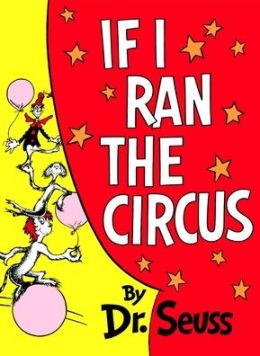
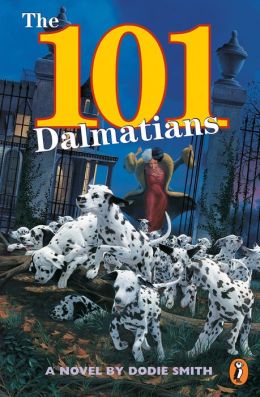





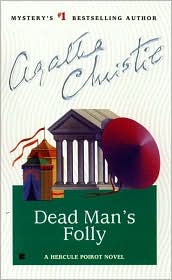



your reviews are great! keep it up! I'd love to do reviews like this.